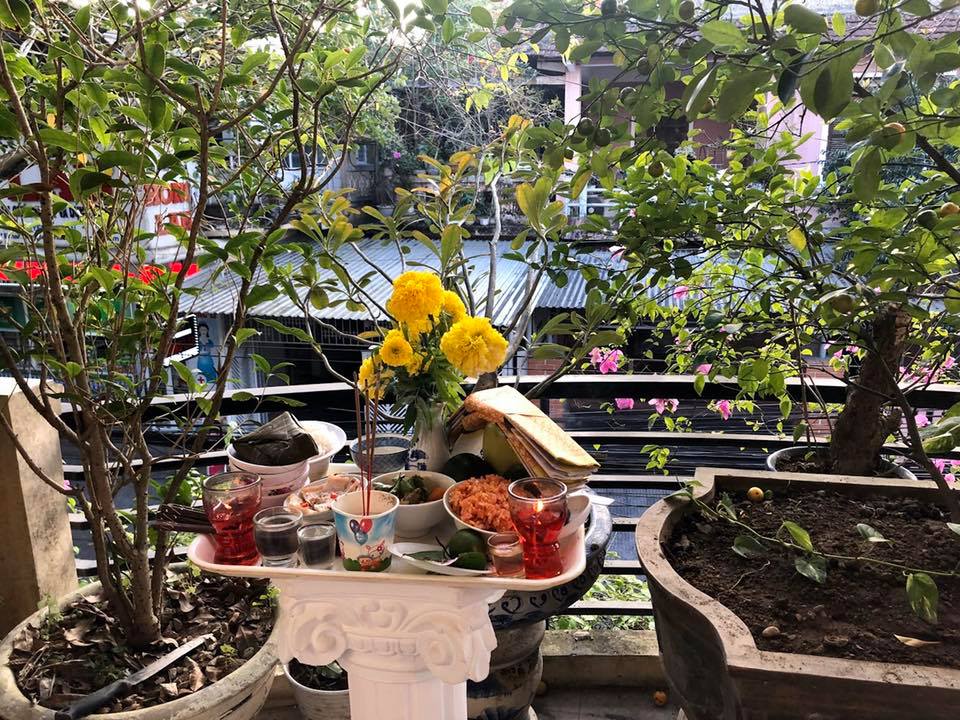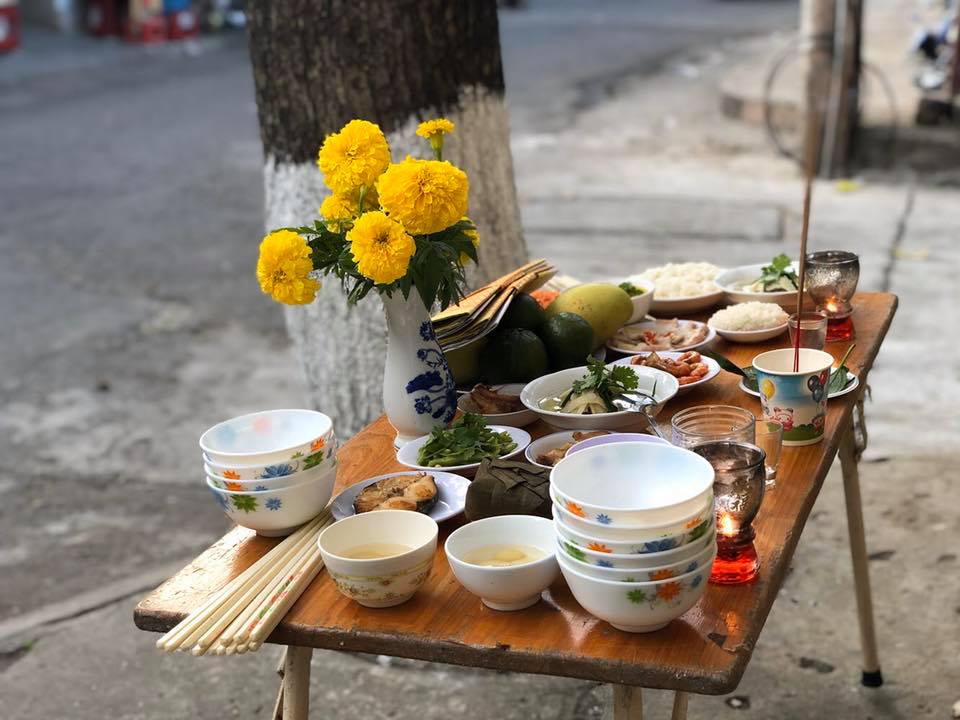Year-end offering is regarded by people in Hue as a time to express gratitude to the deceased in their place of residence or work at the end of the old year and to prepare for the new year. It's also a time for family members to gather after the offering, enjoy the last meal of the year together, reminisce about the events of the past year, and share hopes for the new year.
In the past, people in Hue used to offer year-end offerings late, usually in the days leading up to Tet (Lunar New Year), but nowadays, offerings are made earlier, with some households starting as early as the 20th of the twelfth lunar month. People in Hue are very meticulous in their offerings. In addition to the ancestral altar where offerings are made to ancestors, offerings to the land god are divided into two tables, each with full ceremonial items and a meal. In the yard, garden, and even along the roadside, there are also meals to express gratitude to the deceased.

The offering in the garden
When I was young, we children loved year-end offerings because it meant that Tet was approaching. By then, our new clothes and shoes were already bought, and the candies and cakes were ready. During the year-end offering ceremony, my father also lit firecrackers, and we children covered our ears and laughed as we heard the crackling sound of the firecrackers. When the last firecracker exploded, signaling the end, we scrambled to collect any fallen firecrackers.
As the last days of the year pass in the chilly weather, everyone is busy tying up loose ends, completing unfinished tasks from the previous year, and preparing for the year-end offering.

The offering altar at the base of a tree by the roadside expresses gratitude to passersby
Hue, despite its bustling life, always reserves a corner for spiritual life.